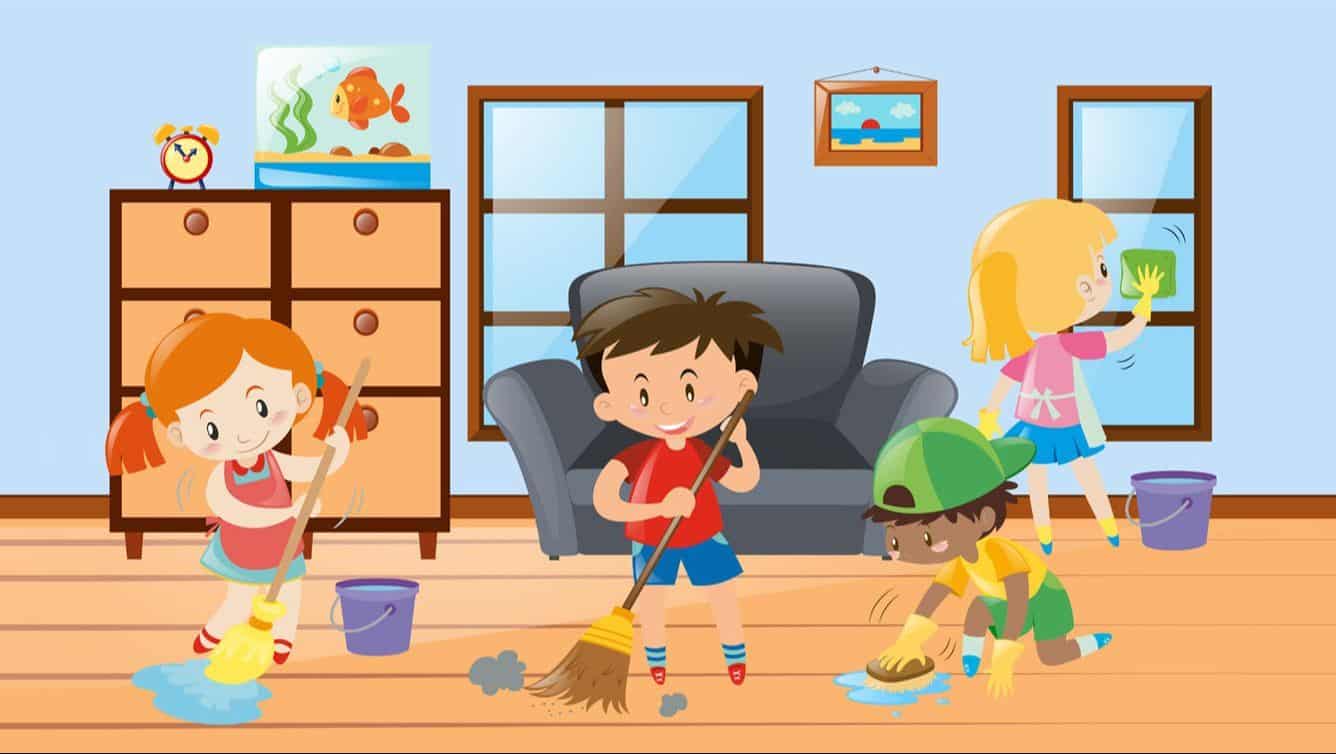
Assigning age-appropriate chores to children can be a great way to help them develop responsibility and independence while also contributing to the household. Here are some tips for implementing duties in your home:
Start Early: Even young children can help with simple tasks like putting toys away or setting the table. Starting early can help them develop a sense of responsibility and teach them valuable skills.
Be Specific: When assigning chores, be clear about what you expect. Provide specific instructions and demonstrate how the task should be done. This will help ensure that the chore is completed correctly.
Use Positive Reinforcement: Provide positive feedback and praise when children complete their chores. This will help reinforce their good behavior and encourage them to continue to meet their tasks in the future.
Make It Fun: Chores don’t have to be boring. You can make them fun by turning them into a game or competition. For example, see who can pick up the most toys in 5 minutes or race to see who can fold the most laundry.
Rotate Chores: Rotating chores is essential so everyone can do different tasks. This will help prevent boredom and ensure children are exposed to various tasks and skills.
Be Consistent: Make sure that chores are assigned consistently and that expectations are clear. This will help children understand that completing assignments is a regular part of their responsibilities.
Chores can be a great way to help children develop responsibility, independence, and essential life skills. By implementing these tips, you can help ensure that chores are a positive and productive part of your family’s routine.






There are several benefits to assigning kids household chores:
Responsibility: When children have assigned tasks, they learn that their actions have consequences and that they have a role in contributing to the household. This helps develop a sense of responsibility.
Independence: Children develop a sense of self-efficacy and autonomy by completing tasks independently. They learn how to do things alone and gain confidence in their abilities.
Life Skills: Chores teach essential life skills such as cooking, cleaning, and laundry. These are skills that will be useful throughout their lives.
Teamwork: Chores teach children the importance of collaboration and cooperation. When everyone works together to complete household tasks, it fosters a sense of unity and belonging.
Work Ethic: Parents can help instill a strong work ethic in their children by assigning chores. They learn that hard work is necessary to achieve goals and that sometimes you must do things you don’t want.
Assigning age-appropriate chores to children can help them develop a sense of responsibility and contribute to the household. Here are some examples of duties that can be set for children of different ages:
2 to 3 years old:
Put toys away in the toy box or on shelves.
Help with simple tasks such as wiping up spills or dusting low surfaces with a cloth.
Put dirty clothes in the laundry basket.
4 to 5 years old:
Help set the table for meals.
Water plants with supervision.
Feed pets with care.
Help with simple cooking tasks like pouring ingredients into a mixing bowl or stirring the batter.
6 to 7 years old:
Make their bed.
Help fold and put away laundry.
Sweep floors with a child-sized broom.
Help prepare simple meals with supervision.
Help wash the car with supervision.
8 to 9 years old:
Vacuum floors with a lightweight vacuum.
Load and unload the dishwasher with supervision.
Take out the garbage and recycle.
Help with yard work like raking leaves or weeding.
10 to 11 years old:
Clean the bathroom with supervision.
Cook simple meals with care.
Help with grocery shopping and meal planning.
Help wash and dry dishes by hand.
12 years older:
Do laundry independently.
Clean the kitchen alone.
Babysit younger siblings with adult supervision.
Mow the lawn with supervision. Clean windows with supervision.
It’s important to note that every child is different; some may be capable of more or less than others. The key is to assign tasks appropriate for your child’s age and ability and gradually increase their responsibilities as they grow older and more capable. Additionally, it’s important to praise and thank your child for their help and to make chores a positive experience.
Written by Nila Baby Shop
Best Baby and Mother Products Store. Our main objective is to provide an exceptional online shopping experience, home delivery, and prompt customer service.
Leave a Reply